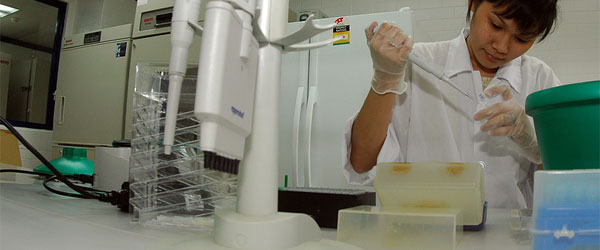So you want to make a difference? Here’s a career move for you that I personally think is a terrific choice for a scientist. I’ve been speaking with Jennifer Pohlhaus, who works in science policy and here’s what she had to say about her job.
Hi Jennifer,
Your job as a Science Policy Project Manager sounds quite intriguing. And what exactly is it that you do?
I work for a small government-consulting firm called Ripple Effect Communications, and I manage a project that we have with the NIH Office of Extramural Research (OER). With a team of about fifteen professionals, I manage all kinds of projects for OER, including Loan Repayment Program Communications, Recovery Act Communications, NIH Guide for Grants and Contracts Publishing System, Human Subjects Research Protections and Assessments, Research Misconduct Tracking System, Evaluation of the ARRA Summer Supplement Program, Diversity in the Workforce, and Financial Conflict of Interest Regulations. My expertise is in Science Policy, so I really like to work on projects that have a policy component, but I also do a lot of project management in the day-to-day.
Would you tell us a bit about your background?
I received my BS in Biochemistry from Rennselaer Polytechnic Institute (RPI), where I also minored in management. I thought that I would somehow combine management and science in my career. Then in my senior year of undergrad, I did a co-op at Novartis (now Syngenta) where I learned that all senior managers had PhDs, not MBAs. So, I decided to enrol in a PhD program and landed at Duke. About 2/3 of the way into my grad school career, I realized that working for a pharmaceutical or agribusiness firm wasn’t going to fit with my worldview, so I was looking for something else to do. I went to a science career fair and found out about Science Policy as a profession. Immediately upon hearing about it, I knew this was something I wanted to do, and I set out to see how I could gain some expertise.
As a graduate student, I was allowed to enrol in some classes each semester, so I started taking courses in Science Policy and Health Policy. When I graduated with my PhD, I also earned a Certificate in Health Policy, which made me competitive for the AAAS Science and Technology Policy Fellowship. That program is a great entré into Science Policy, and is the main way that scientists can transition into the field. I had two great years as a Fellow in the AAAS program, where I worked at NIH in the Office of the Director, studying women in academia and promoting sex/gender diversity in the biomedical workforce. That position gave me the background I needed to move into my current position as a Project Manager.
What do you like about your job?
My job is very exciting because I am doing something different every day. I am involved in many projects at the NIH, and I am able to make an impact on people’s lives, even in an indirect way. For example, recently, I was an integral member of the team that redesigned the format of the NIH Funding Opportunity Announcements. We eliminated many of the redundancies in the announcements, and we implemented a more standardized format so that thousands of scientists can find information quickly and easily.
Your job is an attractive career choice for many scientists who are looking to move away from the bench. What advice would you give to someone who is looking to make this move?
Scientists who are interested in making a move to Science Policy should find a way to get some experience in it, such as classes or volunteer experiences. In addition to helping you figure out if this career might be a match, such experience will be invaluable when you try to gain a job in this field, separating you from others who have none.
Looking back on what you have done in your career, which bits help you most in your job now?
There are many skills that I honed in my PhD studies that help me succeed now, such as being comfortable with ambiguity, developing the ability to think critically about problems, and learning how to motivate myself and work towards milestones.
If I asked you for a favourite quote, what would it be?
For about a year now, I have been using a quote from John Ruskin in my email signature for my personal account: “In order that people may be happy in their work, these three things are needed: They must be fit for it. They must not do too much of it. And they must have a sense of success in it.” I wholeheartedly agree with this quote. Now that I am a supervisor, I try to make sure that this quote describes my staff as well as me.
And to sum up – what three pieces of advice would you give a scientist who is looking to move into science policy project management?
1. Find a way to get classroom or in-person experience with Science Policy.
2. Learn the politics in your lab, your department, your school, and your university. Often, the reason why many things get done (or don’t get done) can be traced to “office” politics. The more you can observe and learn while you are in an academic environment, the better placed you will be to recognize similar patterns in your next position.
3. Observe your PI to learn as much as you can about Project Management. Whether your PI is good at it or not, a PI uses this skill every day to run the lab, the personnel, and the projects.






